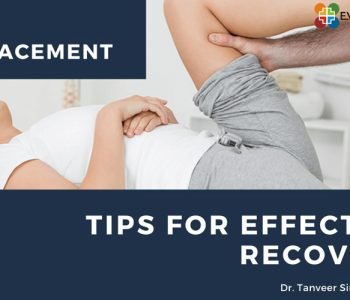 Knee Surgery
Knee Surgery
Hip Replacement- Tips for Effective Recovery
Have you been experiencing hip pain that interferes with your sleep or pain that is worsening with walking even with the help of a cane or walker? Has the hip pain affected your ability to climb up or down the stairs? Have you been facing an acute problem in rising up from a sitting position? It may be arthritis of the hip
The reason for hip damage could be any- Osteoarthritis or Rheumatoid Arthritis or it could even be Osteonecrosis (inadequate blood supply). Irrespective of the reason you need to contact the best orthopedic surgeon of your area and discuss your deteriorating health.
Technically called Total Hip Arthroplasty or Hip Replacement surgery, this has been performed successfully for years. This is the procedure when the doctor surgically removes a painful hip joint (due to acute arthritis) and replaces it with an artificial joint made from either metal or plastic components. The hip replacement surgery makes walking easier and facilitates mobility.
The hip replacement surgery may be performed using the standard procedure (where the incision is 5-8 inches long) or the latest minimally invasive technique.
The surgery definitely makes movement much easier. But there are certain dos and don’ts to be followed to make it a complete success. Dr. Tanveer Bhutani is the best orthopedic surgeon in Punjab and recommends that physical therapy should be continued for a couple of months to enable better recovery and mobility. Certain activities like pivoting or twisting the leg should strictly be avoided. Even bending forward at the waist and squatting must be avoided.
Dr. Tanveer Bhutani has curated a list of activities that can be done easily at home and you will recover quickly post hip replacement surgery.
Certain rearrangements at home can go a long way in helping you recover.
- Place the utility items like remote controls, phone, glasses pitcher, and medicines on a high table within your reach. This will prevent unnecessary bending forward.
- Stay away from enthusiastic and active pets till you fully recover.
- Get all the carpets and rugs removed so that the chances of tripping over are minimized.
- The bathroom should have a shower chair, gripping bar, anti-slip mat, and a raised toilet seat.
- Take the medication prescription from the surgeon and understand the directions.
- Discuss with your surgeon about over-the-counter drugs, supplements, and vitamins.
- Make sure you take antibiotics before any dental work (after consulting your orthopedic surgeon). This will prevent any bacterial infection from creeping in.
- Keep your medical card handy so that in case of any medical emergency it is easily known to the doctor that you have an artificial hip.
- To reduce the swelling, keep your leg elevated and prefer applying ice packs.
- Wear compression stockings to reduce swelling.
- The wound has to be kept clean and dry, so the surgeon will tell you at length about the bathe and shower protocol.
- Watch for any signs of redness or drain from the wound.
- Any kind of blood-thinning medicines vitamin K supplements or foods rich in Vitamin K like spinach, beans, lentils, etc. have to be avoided for a while.
- The surgeon will recommend iron and vitamin supplements along with a normal diet.
After the hip replacement surgery your life would be much more active than before. Adhere to the list of instructions given by the surgeon and you will lead a hassle-free life. Dr. Tanveer is the most renowned surgeon in Ludhiana and gives a customized recovery module to each patient depending on their age, weight, and health status. Contact Dr. Bhutani and get free from the hip pain forever.